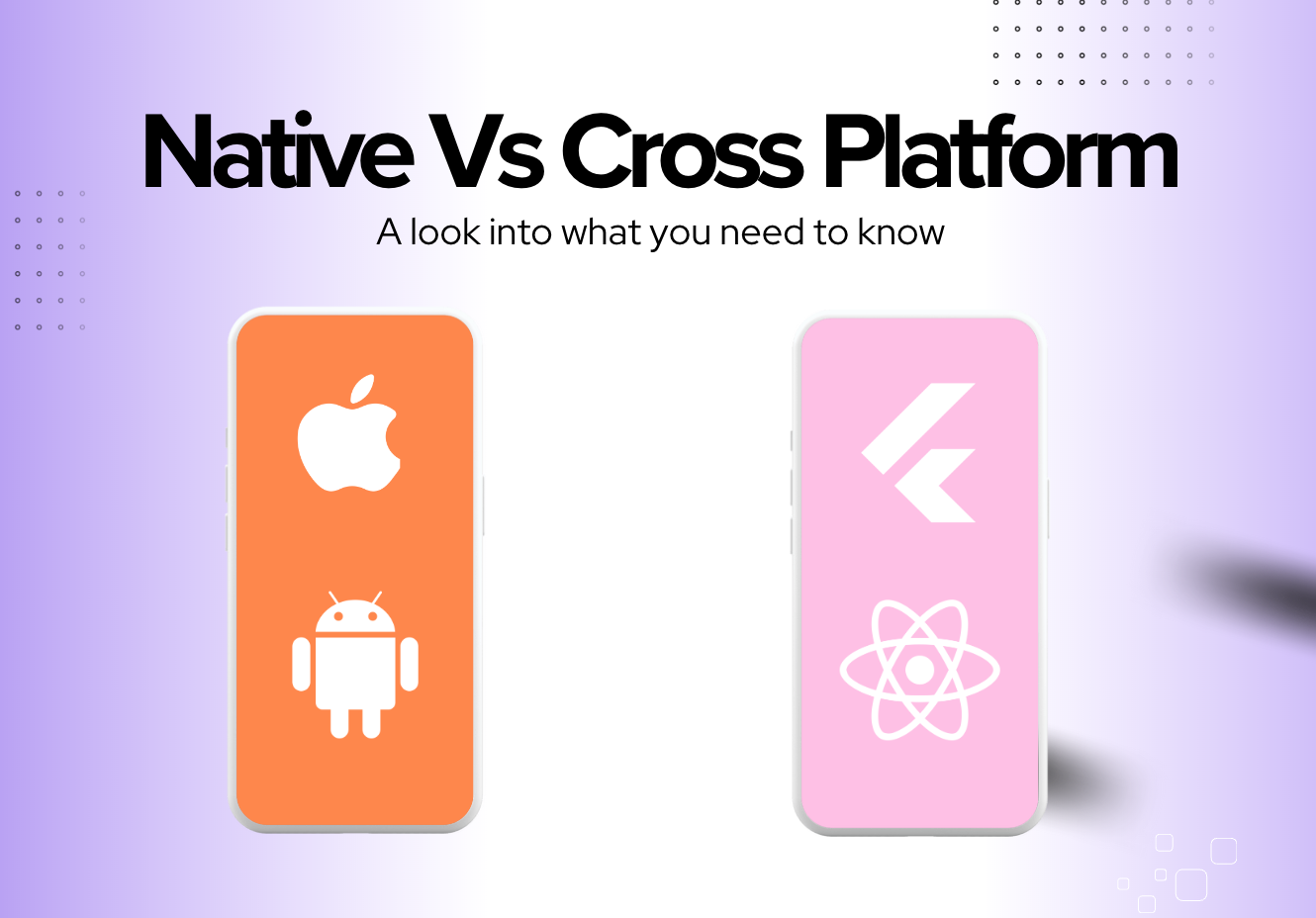Oct 04 - 4min readNative vs. Cross-Platform App Development: What You Need to KnowBy Launchbase
Mobile app development presents a multitude of choices, each critical to your project’s ultimate success. At the forefront of these options are two dominant methods: native app development and cross-platform app development. Each method has its own distinct advantages and limitations. In this in-depth exploration, we’ll uncover the pivotal differences between these two approaches, providing you with the insights needed to confidently choose the right path for your project.
Native App Development
Definition: Native app development involves creating applications for a specific platform, such as iOS (using Swift or Objective-C) or Android (using Java or Kotlin). These apps are written in platform-specific programming languages and can leverage the full capabilities of the device’s hardware and software.
Pros of Native App Development
Performance: Native apps are optimized for a specific platform, resulting in superior performance. They run smoothly, respond quickly, and provide a seamless user experience.
Access to Device Features: Native apps have full access to device features like GPS, camera, accelerometer, and push notifications. This enables developers to create feature-rich and highly functional apps.
Platform-Specific UI/UX: Native apps adhere to platform-specific design guidelines, ensuring that the user interface and user experience feel familiar and intuitive to users.
Security: Native apps are considered more secure because they are reviewed and approved by platform-specific app stores (Apple App Store and Google Play Store).
Offline Functionality: Native apps can work offline, allowing users to access certain features and content even without an internet connection.
Cons of Native App Development
Development Time and Cost: Building separate apps for each platform (iOS and Android) increases development time and costs significantly.
Maintenance: Maintaining two separate codebases requires ongoing effort and resources for updates, bug fixes, and feature additions.
Limited Code Reusability: Code cannot be reused between iOS and Android projects, leading to redundancy and increased development effort.
Cross-Platform App Development
Definition: Cross-platform app development allows developers to create a single codebase that can run on multiple platforms, such as iOS, Android, and even web browsers. Popular cross-platform frameworks include React Native, Flutter, Xamarin, and Ionic.
Pros of Cross-Platform App Development
Code Reusability: Cross-platform frameworks enable code reuse across multiple platforms, reducing development time and effort.
Faster Development: Creating a single codebase saves time compared to developing separate native apps for each platform.
Cost-Efficiency: Lower development time and shared codebase translate into cost savings, making cross-platform development more budget-friendly.
Wider Reach: Cross-platform apps can reach a broader audience by targeting both iOS and Android users simultaneously.
Community and Ecosystem: Many cross-platform frameworks have large and active communities, providing access to a wealth of libraries, plugins, and resources.
Cons of Cross-Platform App Development
Performance: While cross-platform frameworks have made significant performance improvements, native apps still offer slightly better performance, especially for graphics-intensive or complex applications.
Limited Access to Native Features: Cross-platform apps may not have full access to all native device features and capabilities, requiring custom plugins or native modules for specific functionalities.
Platform-Specific Customization: Achieving platform-specific UI/UX can be challenging, as it often requires additional development effort.
Dependence on Third-Party Frameworks: Cross-platform development relies on third-party frameworks, which can introduce potential compatibility issues and reliance on framework updates.
How to Choose Between Native and Cross-Platform Development
Making the right choice between native and cross-platform development depends on various factors, including:
Project Requirements: Consider the specific needs of your project. If you require high-performance graphics, access to extensive native features, or a platform-specific user experience, native development may be the better choice. For simpler applications or rapid development, cross-platform development can be highly efficient.
Budget and Timeline: Evaluate your budget constraints and project timeline. Native development typically requires a larger budget and more time due to separate codebases, whereas cross-platform development offers cost-effective and faster solutions.
Target Audience: Determine your target audience. If you primarily target a single platform (iOS or Android), native development may be sufficient. For broader reach, cross-platform development can be more practical.
Development Team Skills: Assess your development team’s expertise. If your team has experience with specific native languages (Swift, Kotlin, Java), it may be more efficient to choose the corresponding native platform.
Long-Term Maintenance: Consider long-term maintenance requirements. Native apps require separate updates, while cross-platform apps can streamline maintenance with a single codebase.
Examples of Popular Cross-Platform Frameworks
React Native: Developed by Facebook, React Native is known for its ease of use and a vast community. It allows developers to build mobile apps using JavaScript and React.
Flutter: Created by Google, Flutter uses the Dart programming language and provides a rich set of customizable widgets. It’s known for its impressive UI capabilities.
Xamarin: Owned by Microsoft, Xamarin uses C# and .NET to create cross-platform apps. It offers close integration with Microsoft tools and services.
Ionic: Ionic uses web technologies like HTML, CSS, and JavaScript to build cross-platform apps. It’s particularly suitable for creating hybrid apps that run in web views.
Conclusion
The choice between native and cross-platform app development ultimately depends on your project’s unique requirements, budget, timeline, and target audience. Native development excels in performance and platform-specific features, while cross-platform development offers cost-efficiency and wider reach. By carefully evaluating your project’s needs and considering the pros and cons of each approach, you can make an informed decision that aligns with your goals and objectives. Regardless of your choice, the world of mobile app development offers numerous tools and frameworks to help you bring your app idea to life.



